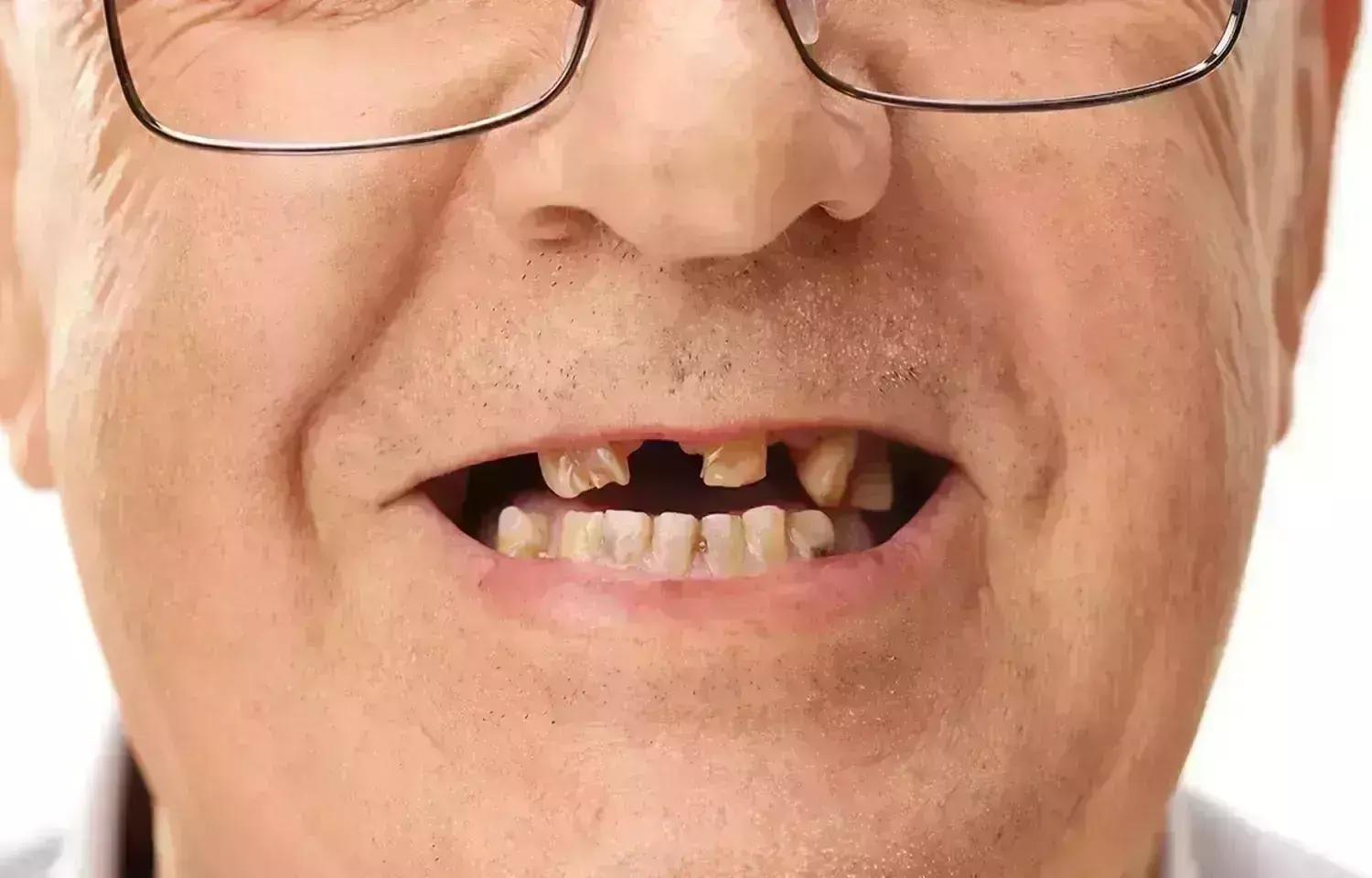Tooth Loss Associated With Cognitive Decline In Older Adults
- byDoctor News Daily Team
- 26 July, 2025
- 0 Comments
- 0 Mins

Tooth loss may be an important risk indicator for cognitive decline according to a recent study published in the Journal of Dentistry.
A group of researchers conducted a study to investigate whether tooth loss and related loss of occluding tooth pairs, were associated with cognitive decline in a group of community-dwelling older men and women from Ireland.
A group of 2508 men and women, aged 50–93 years, underwent a dental examination as part of The Irish Longitudinal Study of Ageing (TILDA). Global cognitive function was assessed using the mini-mental state examination (MMSE). The analysis included multiple logistic regression with adjustment for various confounders.
The Results of the study are:
The mean age of participants was 65.5 years (SD 8.1) and 55.3% of the group were female. Three hundred and twenty-nine (13.1%) of the cohort were classified as having a low MMSE with a score ≤ 27. After adjustment for confounding variables, compared to subjects with ≥ 20 teeth, the odds ratio for a low MMSE amongst edentulous was 1.55 (95% CI 1.03–2.34) p = 0.03, and for those with 1–19 teeth was 1.38 (95% CI 1.03–1.84) p = 0.04. Having < 10 natural occluding pairs and < 4 posterior occluding pairs is also associated with a low MMSE.
Thus, the researchers concluded that in this cross-sectional cohort study, tooth loss and related loss of occluding tooth pairs were associated with a low MMSE in a group of older adults from Ireland, independent of various known confounders. Dentists should be aware of the potential systemic health implications of patients presenting with tooth loss. Tooth loss may be an important risk indicator for cognitive decline.
Reference:
Tooth loss and cognitive decline in community-dwelling older Irish adults: A cross-sectional cohort study by Lewis Winning et al. published in the Journal of Dentistry.
https://www.sciencedirect.com/science/article/pii/S0300571222001348
Disclaimer: This website is designed for healthcare professionals and serves solely for informational purposes.
The content provided should not be interpreted as medical advice, diagnosis, treatment recommendations, prescriptions, or endorsements of specific medical practices. It is not a replacement for professional medical consultation or the expertise of a licensed healthcare provider.
Given the ever-evolving nature of medical science, we strive to keep our information accurate and up to date. However, we do not guarantee the completeness or accuracy of the content.
If you come across any inconsistencies, please reach out to us at
admin@doctornewsdaily.com.
We do not support or endorse medical opinions, treatments, or recommendations that contradict the advice of qualified healthcare professionals.
By using this website, you agree to our
Terms of Use,
Privacy Policy, and
Advertisement Policy.
For further details, please review our
Full Disclaimer.
Tags:
Recent News
Eli Lilly plans to build new USD 3 billion facilit...
- 04 November, 2025
Rajkot Maternity Hospital CCTV Leak: How a simple...
- 04 November, 2025
Gland Pharma profit rises 12 percent to Rs 184 cro...
- 04 November, 2025
AIIMS Delhi doctors told to use Hindi in prescript...
- 04 November, 2025
Daily Newsletter
Get all the top stories from Blogs to keep track.


0 Comments
Post a comment
No comments yet. Be the first to comment!